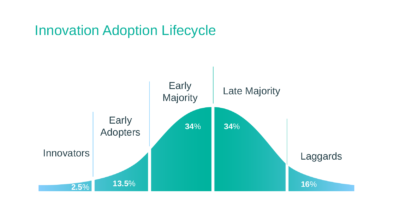Time to Switch: Modern Headless Commerce is Now Mainstream
Forrester Wave™ results are out! We shot up the ranks in both B2C and B2B as a commerce platform vendor, but that isn’t the only news. It’s also never been clearer that headless modern commerce platforms are widely accepted and easy to adopt.
Earlier this year, we addressed the importance of digital maturity for organizations in picking the right commerce solution. A modern platform is the best fit for more digitally mature  organizations with at least some combination of in-house IT capabilities, projects deployed in the public cloud, and adoption of headless, microservices or agile development practices. While companies in earlier stages of digital maturity continue to exist, many more companies are now in the intermediate and advanced stages.
organizations with at least some combination of in-house IT capabilities, projects deployed in the public cloud, and adoption of headless, microservices or agile development practices. While companies in earlier stages of digital maturity continue to exist, many more companies are now in the intermediate and advanced stages.
We’ve climbed the hill to make headless mainstream
The classic technology adoption lifecycle applies to how businesses have been responding and choosing commerce solutions for themselves. Modern commerce is now further along the technology adoption lifecycle than it was several years ago. Innovators and early adopters, the two groups that fall in the early stages of the technology adoption lifecycle, are usually more ready to embrace cutting-edge solutions. Companies in that category have already embraced modern commerce and headless solutions for several years now – back when these were seen as radically new and developers who knew about the merits of such solutions had to do some serious work convincing their team and company to give it a shot.
What we’ve seen lately is that the majority of early-stage companies have also mostly moved into the cloud, modernized many parts of their tech stack, and started their move from legacy systems into modern platforms – not just for commerce, but for various parts of their business environment. We’ve managed to overcome the uphill climb!
Convincing the rest of the world out of legacy suites
We’ll go ahead and celebrate the victory, for us and the businesses out there who want an easier time creating great shopping experiences, but there’s still a lot to do. The challenge that remains is convincing the late majority and laggards to consider a headless modern commerce solution, such as what commercetools offers. These late adopters are typically more conservative companies, from industries where tech is just another cost-center and not seen as a primary channel for revenue. They are tied down by legacy software suites which are “tried and tested”, but don’t realize is also the very thing holding their business back.
Those that do make the leap are quick to discover, and appreciate, that modern commerce breathes new life into their business (proven by the positive customer and revenue results that follow). Going headless with a modern tech stack is a snowball effect that tends to start with smaller steps like moving into the cloud. This opens up the doors for companies to broaden their scope and modernize other systems along the lines of commerce and CRM. What they end up with is more flexibility and the freedom to react faster to market changes and customer demands.
The merits of a modern commerce platform
Commerce suites were fine 20 years ago, during the rush to have an internet presence, and the only requirement was to have an e-commerce website that worked. But in today’s fast-moving market that requires coverage across so many touchpoints, being locked into one solution — that dictates the tech you’ll have to use, what features you’re able to have (and not have), and forces you to create wonky workarounds to do anything that’s not baked into the suite — is a serious competitive disadvantage.
As part of digital transformation, many businesses are re-platforming to modern solutions. New vendors, like commercetools, offer an alternative to monolith suites with decoupled, headless commerce platforms and microservices. Modern solutions like ours offer many benefits to customers, such as continuous daily releases, excellent compatibility with CRM, CMS and other software used within the ecosystem, and high degree of customization to fit their exact commerce needs.
Educating the market is something we and our partners have been and continue to invest heavily in. There are benefits that modern commerce brings to both development teams and the bottom line of businesses. Publishing informative pieces, hosting events and webinars, and performing ‘show and tell’ of customer success stories are just a few ways we’re getting the word out on those merits. If you’re interested to learn more, there’s no better place than the commercetools Business Blog as well as our Tech Blog. We’re also hosting a series of informative webinars led by respected industry experts.
View original content here
Related commercetools News: